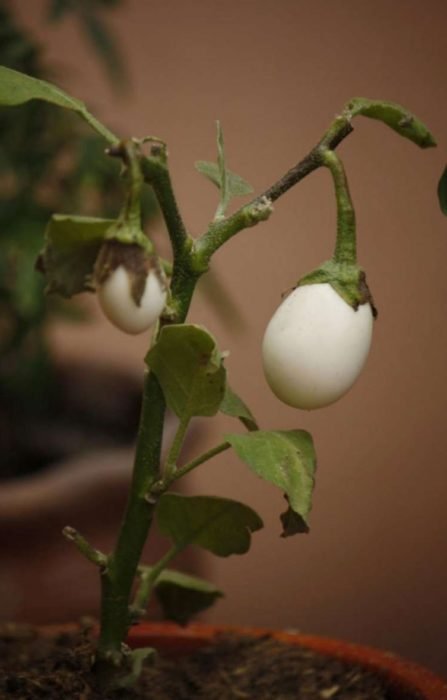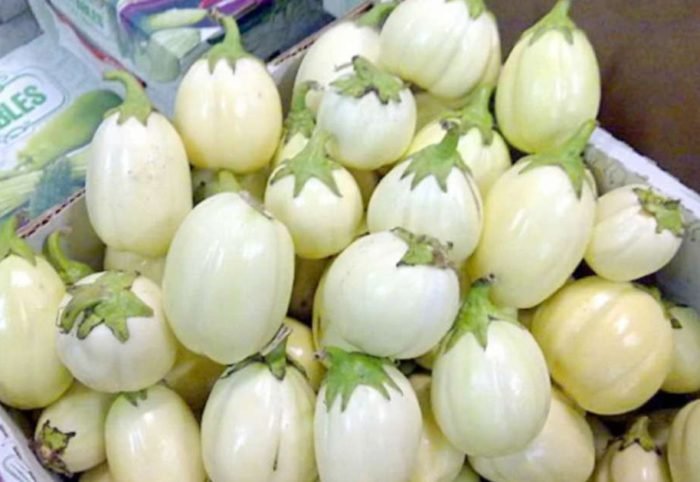Garden egg is one of the vegetables that are of tremendous value to the human body because of its nutritional and medicinal values. There are numerous health benefits from eating garden eggs ranging from infertility, kidney failure, weight loss, blood cleanser, cancer, and others.
In this article, I will be sharing with you the various health benefits and implications of garden egg, how to prepare garden egg sauce, and many more.
Health benefits/Importance of Garden egg
Research has shown that the garden egg has so many health benefits compared to other edible plants. It’s highly recommended for pregnant because it’s rich in fiber, contains lots of nutrients and low in calories. Some of the benefits of garden eggs include
- Fights cancer – Garden egg contains some anti-cancer elements such as Chlorogenic acid and Anthocyanins. The elements present in the fruit makes the cells immune against damages caused by free radicals. Also, it prevents the growth of tumour and the spread of cancer cells.
- Low cholesterol – eating of garden eggs helps to remove excessive cholesterol in the body and to keep the heart-healthy.
- Help in weight reduction – the plant helps in reducing appetite and doesn’t increase satiety. It also helps in reducing possible calorie intake by a person by making them not feel hungry for long.
- Improves vision – it helps in enhancing the overall vision of a person
- Helps during pregnancy – Pregnant woman needs garden egg to control blood pressure, avoid malnutrition, and prevents edema.
- Boost healthy liver – aside from helping regulate a person’s sugar level. It can help preserve the liver from certain types of toxins.

Garden egg leaf
Garden egg leaf contains a lot of vitamins and minerals that are useful during pregnancy and over body performance. Many prefer eating it raw or making salad with it.
Garden egg leaf is said to be rich in Vitamins, calcium, and potassium. It also contains a lot of phytochemicals, which serve as an immune system for the body from the formation of cancerous cells. Doctors recommend the consumption of garden egg leaves to help in checkmating the sugar level of blood.
Nutritional value of Garden egg
The nutritional benefits of garden egg to the human body cannot be overemphasized. Garden egg doesn’t contain a large percentage of protein compared to other nutrients, but it is rich in dietary fiber, potassium, and vitamin B1. Also, garden egg is a good source of niacin, magnesium, folate, vitamin B6.
Below is a table that contains nutrients that are in garden eggs (100 grams) and how much a person can consume a day depending on their age and health condition.
| Nutrients | % grams | Nutrients | % grams |
| Sugar | 3.53 | Vitamin B6 | 0.084 |
| Dietary fiber | 3 | Vitamin C | 2.2 |
| Fat | 0.18 | Vitamin E | 0.3 |
| Protein | 0.98 | Vitamin K | 3.5 |
| Thiamine | 0.039 | Calcium | 9 |
| Riboflavin | 0.037 | Iron | 0.23 |
| Niacin | 0.649 | Magnesium | 14 |
| Folate | 22 mg | Manganese | 0.232 |
| Pantothenic acid | 0.281 | Phosphorus | 2 |
| Potassium | 229 mg | Zinc | 0.16 mg |
Calories in Garden egg
Garden egg contains a very low amount of calories in them. The number of calories in a garden egg depends on the size of the Garden egg.
According to fatsecret.com, it reports that four average-sized African garden eggs contains 28 calories while USDA states that garden eggs of 100 grams contains 25 calories.
Benefits of Garden egg leaf
The benefits of Garden egg leaf are numerous. They include
- Help in regulating the functions of the heart and blood pressure.
- Garden egg leaf helps in curing fertility and libido challenges.
- The leaf nutrients help in boosting the human body’s immune system.
- Consumption of the leaves improves the blood levels in both male and female

Is Garden egg good for a pregnant woman?
Garden egg is one of the most recommend vegetables for pregnant women by medical practitioners. The plant is healthy for women in pregnancy because it has a large percentage of good vitamins and minerals that help in avoiding malnutrition, preventing anemia, control blood pressure, aids in digestion, strengthen the bones of the unborn babies, and many others.
However, pregnant women are advised against excessive eating of garden eggs because it can lead to hypoglycemia, stomach ulcers, and others. Also, fried garden egg shouldn’t be taken by a pregnant woman, and overripe garden eggs can lead to the formation of solanine (a toxin), which can cause diarrhea, convulsion, vomiting, and stomach cramps.
How to prepare Garden egg sauce
Garden egg sauce is one of the favorite delicacies for Nigerian families. It’s prepared by mixing fried egg sauce with garden egg. Most people prefer eating their Garden egg sauce with boiled yam. I will be sharing with you step by step guide on how to prepare garden egg sauce.
- Blend your desired amount of par-Garden egg using a blender or a mortar and steam the blended garden egg for 2 minutes
- Pour palm oil into a clean pot, allow the oil to heat up.
- Then, put in the steam-blended garden egg. Stir for a minute then allow to cook-fry before stirring again.
- Keep stirring till the water in the blended garden egg dries up.
- Add your seasoning, Crayfish with pepper to cook for a some minutes
- Pour in your meat and fish, stir and allow to cook for 5 – 7 minutes.
- Your Garden egg sauce is ready!!!
Garden egg and fertility
Many African cultures believe strongly that garden eggs help in boosting fertility and libido for both men and women. Although this has not been proven scientifically, many have testified to the wonder-working power of garden egg, and it’s leaves.
Garden egg leaf juice
Garden egg leaves can be used to create juice due to its richness in vitamins, minerals, and antioxidants. Essential vitamins such as Calcium, potassium, folic acid, vitamin B, and C are stored up in the leaves, and they can be extracted by squeezing to produce juice. Garden egg leaf is a great remedy for Kidney disease.
The Garden egg juice can be produced using the following steps:
- First, ensure your properly rinse the garden egg leaves with warm water
- Slice the leaves into smaller portions
- Squeeze the sliced leaves continuously to extract liquid from the leaves.
- Next, pour the extract into a clean pot and boil for 5 minutes under mild temperature.
- Lastly, filter the boiled extract. Your garden egg leaf juice is ready.
Disadvantages of Garden egg
Everything that has an advantage must always have a disadvantage. Too much consumption of garden egg and its leaf can lead to the following:
- Solanine poisoning – Excess us of garden egg can lead to the formation of toxins like solanine that are dangerous to the human cells.
- Kidney stones and Oxalates formation – Garden egg contains oxalates that are key in the formation of kidney stones in most people. It also not suitable for people with kidney stones as it can lead to death.
Abbey Johnson has a Masters degree as an engineer and has over 3 years of teaching and research experience. He is happiest when on a bike and is also interested in electric energy and computer Science.




